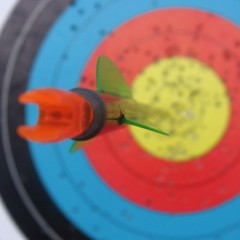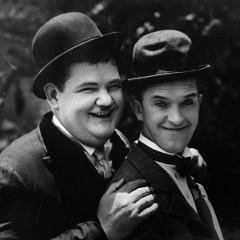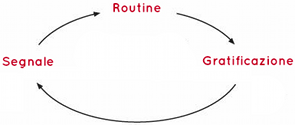Practical advice to concretely implement the good intentions of the beginning of the year.

Those who have the purpose of conquering or dying are unlikely to be conquered.
Pierre Coneille.
Here we are! The old year is winding down and the new year is getting closer and closer; and with the new year the saga begins again good intentions.
It is useless to pretend nothing has happened, I know very well that you have already started fantasizing about all the amazing goals you intend to achieve next year: to have a model body, to earn 1 million euros, to overcome 8 university exams in one session and, in your spare time, conquer the world.
Did I get close ?!
Yet, looking back on the good intentions you made last year, how many of these have turned into reality ?! Ten? Five? One? Nobody?!
Azz ... nobody ?! Really?! Ok, ok, there is no need to despair: there is a solution to everything ;-)
7 steps to make your good intentions come true
In today's article, I want to bring you back 7 key steps that can help you in the realization of yours good resolutions for the beginning of the year. Here they are:
- Purposes and not (s) purposes. In the title of the article I purposely used a play on words to remember how often our intentions look rather like… blunders. We have a tendency to exaggerate the capabilities of our "Future I", forgetting the potential of our "I Present". In the first weeks of January, we always want to overdo it, arriving in February now exhausted and unmotivated. This year do yourself a favor: give yourself obiettivi A.M.B.I.Z.I.O.S.I, but reachable. Remember: if you are looking for lasting success, many small goals achieved are better than one big missed goal.
- Plan ahead. When you decide to pursue a good purpose by establishing a new habit, the first few days are crucial. If you go into trouble, without knowing what awaits you, the chances that you decide to abandon your good intentions are very high. If you have decided to change your life with the new year, start planning your "personal revolution" now. What resources do you need to achieve your goal? What skills? Do you have to be in a specific environment and / or situation to get the results you want? Do you know someone who has already achieved your goal and can help you? Do you need a guide or a well-defined roadmap? These questions can help you focus on what awaits you in the coming months.
- Identify the obstacles. If you've set yourself an ambitious goal and think you won't run into any problems, well… I have bad news for you: obstacles are inevitable. Indeed, it is how you deal with these inevitable obstacles that determines whether or not you will honor your good intentions. Once again: do not get caught unprepared, think in advance about what the potential obstacles may be and imagine how to mitigate their effects. Some examples? If you've decided to hit the gym but know you'll soon lose motivation, try finding a training partner who will keep you in line.
- Choose a symbolic date. You don't have to wait until January 1st to change your life, real change can happen every day, every hour, every moment. Still, symbolic dates can work. Setting a date for our personal revolution helps our subconscious to set up all those little changes beneath the surface, which will be of great help to us when we step into the field. Grab a calendar, choose your start date and make a nice red circle around it. These little gestures send very important messages to your brain.
- Write it anywhere. Have you ever wondered why it is so difficult change habits? Establishing a new habit in our life requires attention and mindfulness. Generally we have to learn a new skill, we have to change our schedules, we have to remember to perform a certain activity, etc. Our mind loves routines: if you break the mold your lazy brain will put a spoke in the wheel. However, we can use tricks to make things easier. One of the most effective tricks is to continually bring the brain's attention back to our goals. But how? Simple, choose a mantra, or a phrase that motivates you or you constantly remember what your goal is, print it on a piece of paper and carry it in your wallet, or hang it in front of your desk. Here are some ideas to start with: "Motivation: 10 aphorisms to regain the charge"And"The anti-procrastination manifesto".
- Accidents are part of the journey. If you don't fail, you don't progress. Failure is one of the 5 key ingredients of success: failure is not an eventuality, a curse of fate or a sign of ill omen. Far from it. Failure is a filter: it serves to separate those who want a goal with all of themselves, from those who, after all, are not so motivated. If, for example, you have decided to quit smoking and after a week you find yourself with a blonde in your hands, do not make a tragedy of it: try to understand what were the situations and thoughts that triggered the desire to smoke and work on these triggers. Success is a matter of perseverance.
- Reward yourself. As I wrote a few years ago, there is a precise success algorithm, which includes 3 basic steps. Guess what one of these steps is? The "prize": there is nothing to do, we are machines programmed to avoid pain and seek pleasure. If you learn to tie pleasure (the reward) to your goals, it will be like putting yourself on autopilot to achieve your goals.
So what do you think? Are you ready to make your New Year's resolutions come true?


























